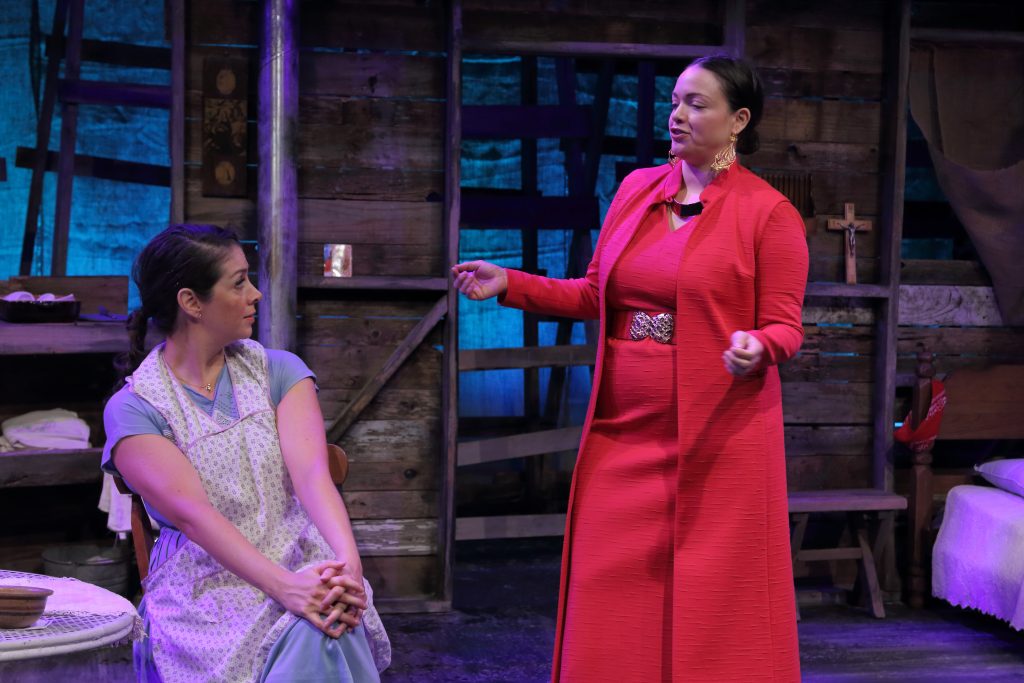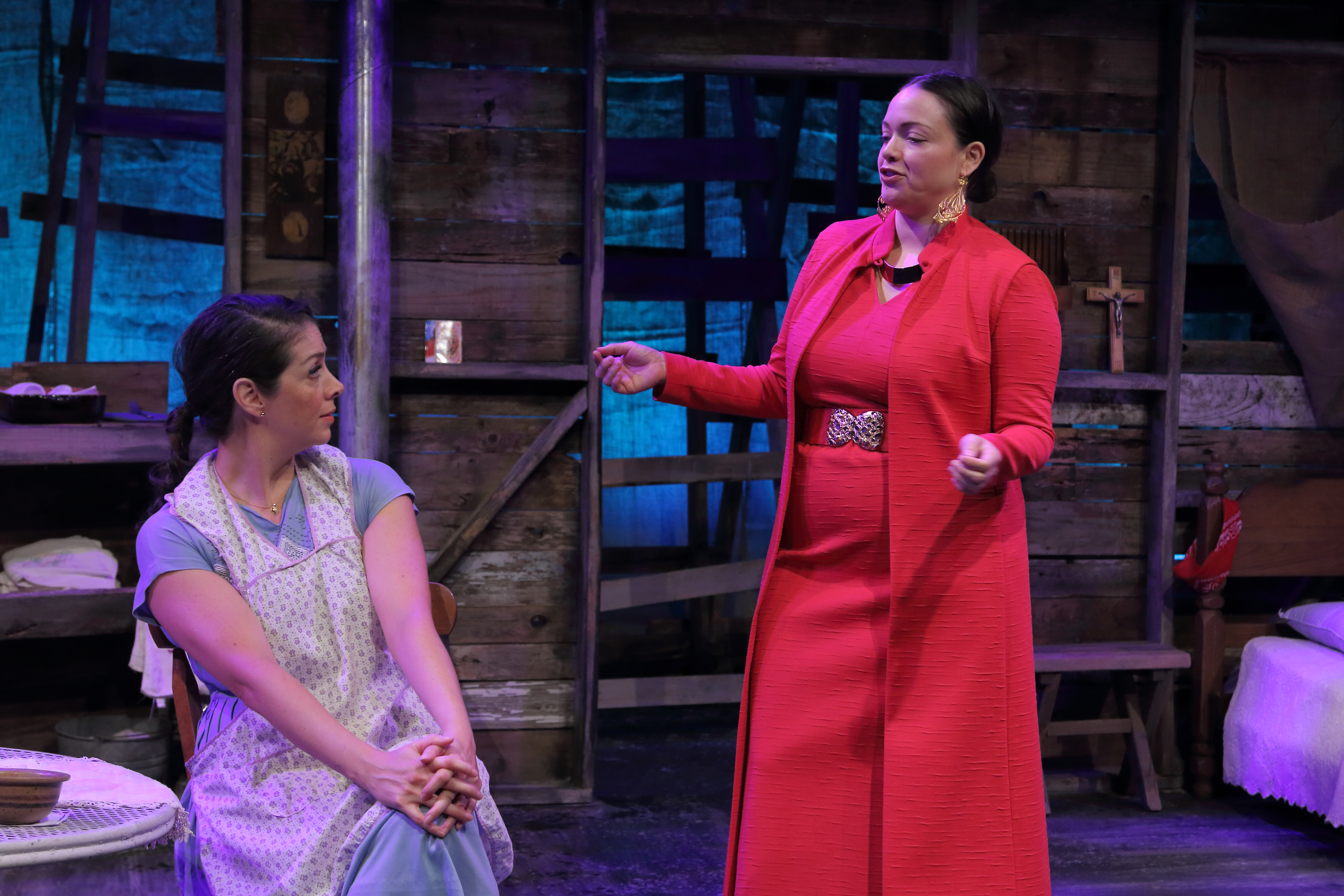
The immediate impetus for the play, said Garza, “is the cultural fallout of Trump’s actions. I feel responsible to advocate and fight for social justice. It is time to defend the human rights this country is about.” Garza’s own ancestors have been in the land that is now Texas for 300 years.

The play, entitled There and Back, is about Mexican immigrants. It specifically looks at one married couple in the early 1960s. As the play takes us up to our own time, the focus shifts to just the wife as she ages and has a son and grandson. A small radio is used as a time device to mark the passage of time as it plays speeches from presidents ranging from Kennedy to Trump. Actors Karina Dominguez and Mical Trejo take on all these roles with sensitivity and make them perfectly believable. This is enhanced by a evocative set by Ia Enstera, showing the couple living in a converted chicken coop.

Walter Koenig (Chekov on Star Trek in 1968 and 69) was the son of an avowed Communist, who emigrated to the United States in 1912, five years before the Russian Revolution. Koenig related a story from his childhood at the Las Vegas Star Trek Convention in August 2018. “In 1948 I opened the mailbox (I was 12 yrs old), looking for a Lone Ranger 6-shooter ring that I was expecting. Instead of that what I found was a crumpled piece of paper with 4 words on it: Shit Commies Get Out. Not funny – scary.”
Because his father was a known Communist, Koenig said “The FBI interviewed everyone in my apartment building about us.” To prevent any dangerous material being found in their apartment, “we threw into the incinerator music by the Red Army Choir. I was tossing books by Howard Fast (a writer for the Communist newspaper The Daily Worker) and Thomas Paine and for some reason by Jack London. My father was concerned that Jack London might be considered subversive. I spent every day wondering when the FBI would come to our apartment. They never came to us. I was living with that for 6 years from 1948 to 1954, wondering when we would hear the knuckle rap on our door.”
Koenig said the efforts of Senator Joe McCarthy to ferret out Communists in the United States developed into a terrifying time. “There was a wonderful play in 1953 called The Crucible by Arthur Miller, about witch-hunting, inspired by what was happening in our country. We’ve got to do better than we have now. There is no country, there is no culture, there is no society that hasn’t suffered from periods of inhumanity.”

During an appearance at the Long Center in Austin a few weeks ago, Takei said “it was after Star Trek became a phenomenon that I was able to do some advocacy. With Star Trek I was for the first time proud to be an Asian American. Gene Roddenberry, who created Star Trek, was a man who wanted to comment on the issues of the time. The starship Enterprise was a metaphor for starship Earth. It was a wonderful, exhilarating view of our future.” Race relations was a theme Roddenberry tackled 50 years ago, and it is relevant still today, as evidenced by the play There and Back now showing in Austin.
Photo of Raul Garza by C. Cunningham
There and Back plays at the Ground Floor Theatre in Austin until Aug. 25.
Visit their website: www.groundfloortheatre.org
